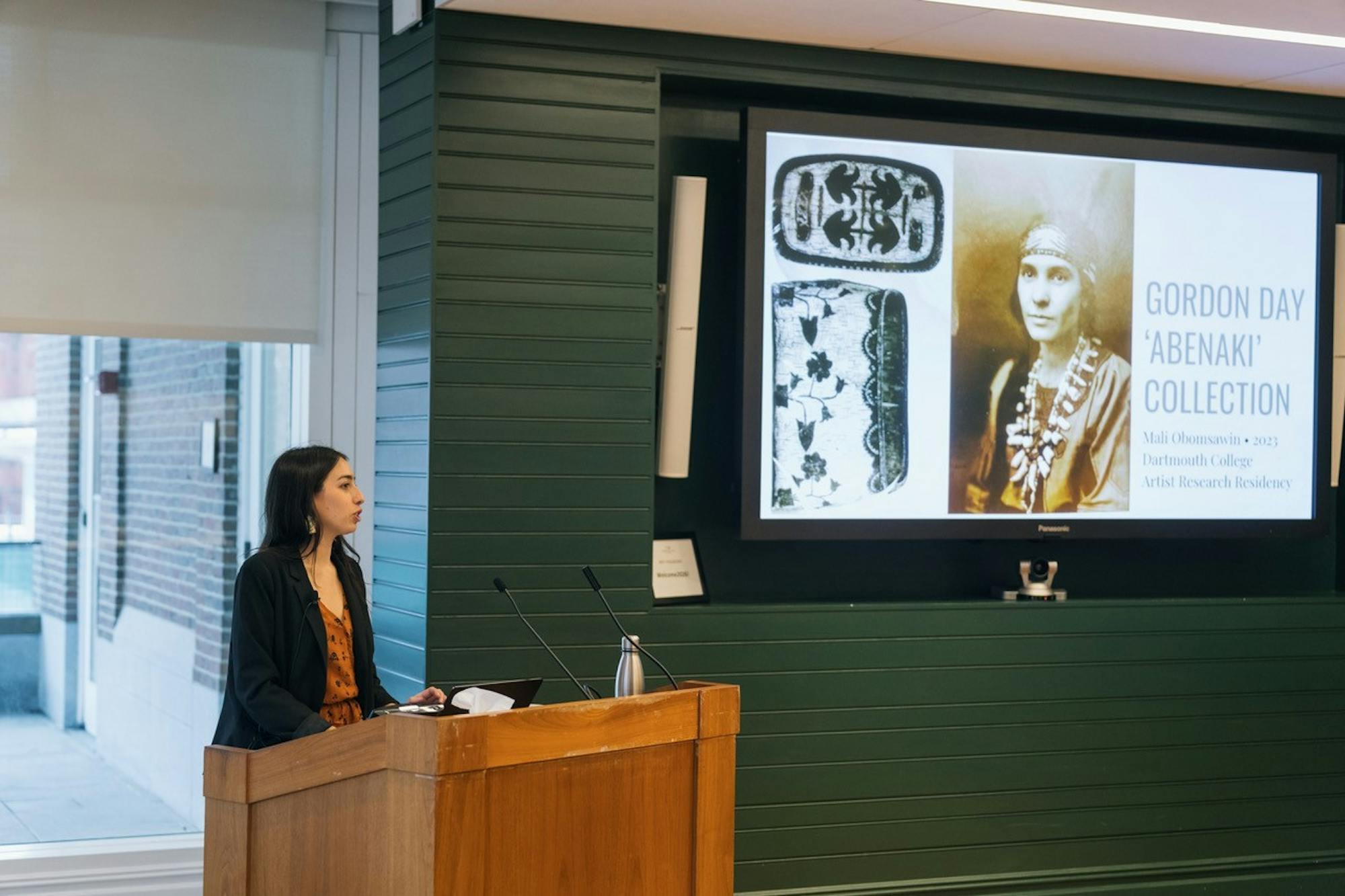A grant from the Mellon Foundation that provides funding to advance collaboration between the Dartmouth Library and the Hood Museum of Art is nearing the end of its initial three-year duration. The $500,000 grant, which is called Advancing Pathways for Long-Term Collaboration at Dartmouth, was awarded in January 2020 — though it faced delays due to the COVID-19 pandemic — and has a focus on Native American and Indigenous Arctic collections.
Dean of libraries and grant steering committee member Susanne Mehrer said that the project grant arose from a larger strand of funding that the Mellon Foundation intended for collaboration between libraries and museums in higher education. Mehrer added that members of the steering committee saw the grant as an opportunity to work specifically on Native American and Indigenous collections at the College.
Cultural heritage and Indigenous knowledges fellow Zachary Miller said that the grant serves a variety of purposes, including providing workshops and residency programs, improving digital archiving software and educating and connecting library and museum staff. Miller added that the grant seeks to create a “collaborative relationship” with Indigenous communities, in addition to student-and-staff-oriented educational opportunities related to the collections.
“A core value of this project is to establish respectful and enduring relationships with Indigenous communities whose cultural heritage is reflected in both the Library’s and Hood Museum’s collections,” Mehrer said.
An important aspect of the project so far has been a “deep dive” into working with the Abenaki First Nation at Odanak community, according to College archivist and steering committee member Peter Carini. Carini added that the library’s recent collections related to the Odanak people date back to anthropologist Gordon Day, who was employed by the College in the 1950s and 1960s to study the Abenaki peoples.
“There’s a long history between Dartmouth and Odanak,” Carini said, noting that part of the recent work has involved “helping their cultural center with collection management databases and systems.”
Musician Mali Obomsawin ’18, a member of the Abenaki First Nation at Odanak, said that she completed a weeklong residency program focused on the Gordon Day papers this January as part of Advancing Pathways programming.
“It was a weeklong residency, but I feel like it actually started a couple months ago when recordings that include interviews with people at Odanak were sent to me,” Obomsawin said. “It is a huge collection that I’ve been working my way through over the past few months.”
The idea for the residency came after several members of the steering committee attended Obomsawin’s concert in 2021, according to cultural heritage technical developer for the grant Richel Cuyler ’06. Obomsawin met with the team over the summer of 2022, Cuyler said. During her residency, Obomsawin spent time at both Rauner Special Collections Library and the Hood Museum, in addition to leading workshops for students and faculty, Cuyler said.
Obomsawin said that working her way through the reel-to-reel recordings in the Gordon Day collection has been inspiring.
“I’m interested in figuring out what my relationship, artistically, will be with this collection,” Obomsawin said.
In addition to programs like Obomsawin’s residency, grant resources have gone toward technologies that connect Indigenous communities with museum and library items, Cuyler said.
“A community may want increased digital access,” Cuyler said. “We might use photogrammetry to create 3D models or build a digital exhibition of cultural heritage that we have.”
Assistant director of digital platforms at the Hood and steering committee member Meredith Steinfels described a new “linchpin” software associated with the grant called, International Image Interoperability Framework, She added that IIIF helps to “unify the library and museum holdings” by allowing interoperability between images and objects in Dartmouth’s collections.
With a physical basket at the Hood Museum and photos of a woman making the basket in the Rauner Special Collections Library, for example, “IIIF would allow us to put those two images together in a single viewer, and then start to annotate and add text and context,” Steinfels said.
Beyond increased digital access, Indigenous communities may ask for the physical repatriation of objects within Dartmouth’s collections, but that process occurs outside the realm of the funding provided by the Advancing Pathways grant, Mehrer said.
Multiple steering committee members said that the grant is a step forward in the College’s relationship with Indigenous communities. Carini said that the broader work associated with the grant “is still in the early stages.”
“Whatever we learn here needs to keep going,” Steinfels said.
Obomsawin hopes that the grant would help Dartmouth “right its relationship” to Odanak.
“I think there is a really awesome opportunity here with this grant to open a new chapter in the relationship between the Odanak Nation and Dartmouth,” she said.
Additionally, Miller said the grant marks a shift in how the College conceptualizes the role of institutions like the museum and libraries.
“Museums can be pretty hostile places for Indigenous cultural heritage,” Miller said. “The Advancing Pathways team is working to right historical wrongs and change structures within these spaces.”




